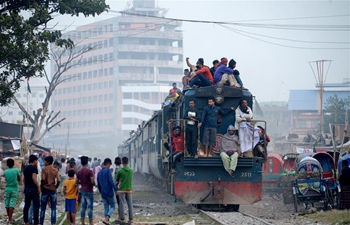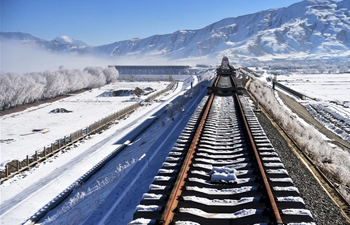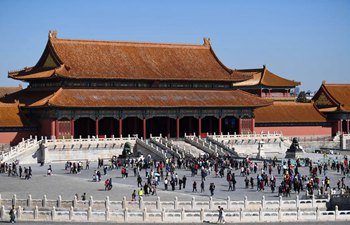KABUL, Dec. 24 (Xinhua) -- U.S. President Donald Trump's recent decision to drawdown troops by half in Afghanistan has sparked mixed reaction in the militancy-plagued country.
According to media reports, Trump has ordered withdrawal of about 7,000 out of 14,000-strong forces stationed in Afghanistan amid increasing militancy.
The decision, announced in the wake of two-day talks between U.S. special envoy for peace in Afghanistan Zalmay Khalilzad and Taliban representatives in the United Arab Emirates, where the Taliban delegation refused to meet Afghan government's negotiating team.
Downplaying the impact of the possible withdrawal, Afghan presidential spokesman Haroon Chakhansuri said the troop withdrawal will not affect the security situation.
"The withdrawal from Afghanistan will not have a security impact because in the last four and half years Afghan forces have been in full control," Chkhansuri said in a social media message.
Afghan security forces took the security responsibility of their country in late 2014 after the withdrawal of more than 100,000 U.S.-led coalition forces from Afghanistan.
Lashing out at the decision, lawmaker Kamal Naser Osuli said, "We didn't ask the U.S. forces to come to Afghanistan." However, he said "It should be responsible to fulfill its commitments made with Afghan people regarding peace and stability in Afghanistan."
Another lawmaker Sadiqi Nili also blasted the troop withdrawal as irresponsible act, saying "U.S. forces had never came here because of Afghanistan, not stayed and nor leaving because of Afghanistan. They came here because of their own interests."
Kabul resident Nurullah described the U.S. forces possible withdrawal as an advertent step. "They came to fight terrorism, they dismissed Taliban regime 17 years ago and now are leaving without winning the war on terror." This is a clear defeat of the United States in Afghanistan, he told Xinhua.
However, Mohammad Azam of the northern Balkh province opined that the U.S. forces withdrawal may help Taliban militants to come to power again in the country.
Recalling Taliban harsh policies during their reign collapsed in late 2001, Azam warned that the Taliban, if come to power again, would bring infighting, poverty and eventually the country's destruction.
"The U.S. invasion to Afghanistan began with war and its forces pullout would further escalate the conflict and eventually factional fighting in the country," an aged lady from northern Badakhshan province told Xinhua.
Nonetheless, Abdul Azim, a teacher from the northern Baghlan province, believed that the U.S. forces' possible withdrawal would encourage anti-government militants to increase activities, and on the other hand would derail the ongoing peace process and scare away businessmen in the country.













